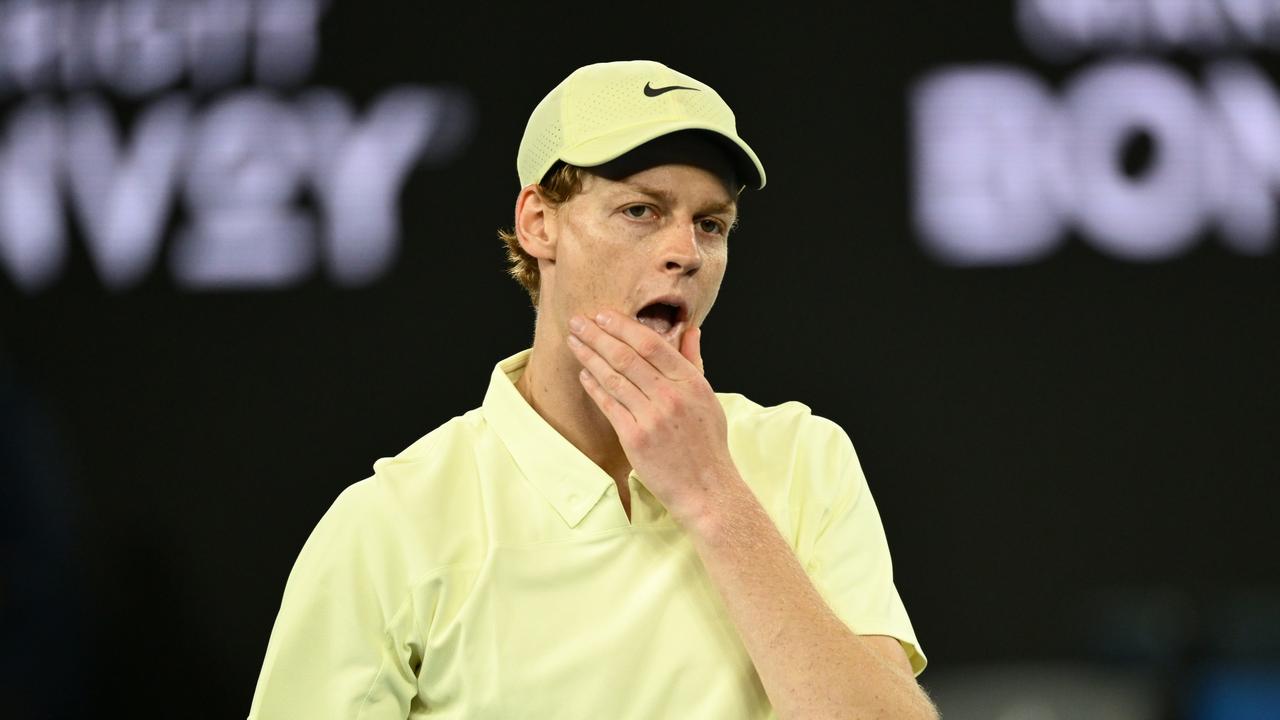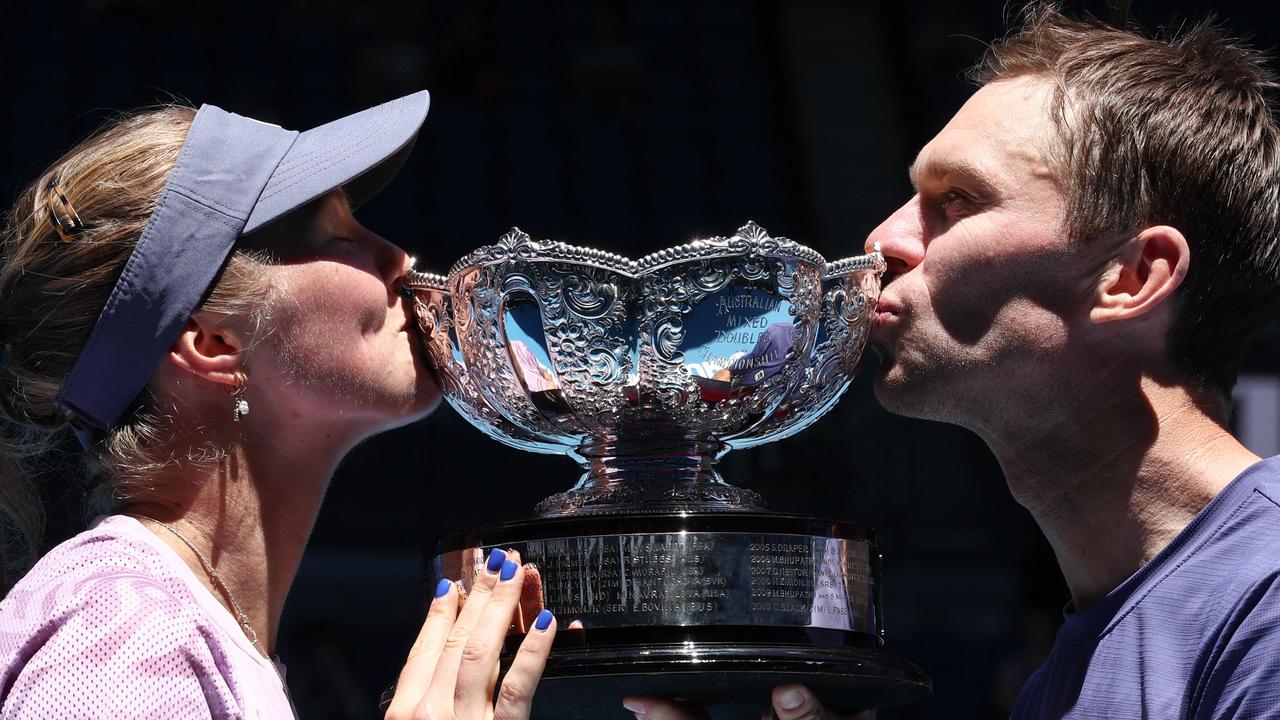Australian Open 2021: Yulia Putintseva and players told to stop feeding mice in their rooms
Tennis stars have been told to stop feeding their uninvited quarantine roomates amid videos of mice in hotels rooms being shared on social media.
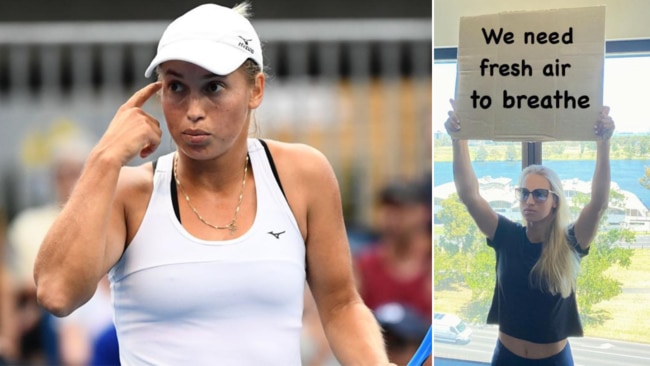
Aus Open
Don't miss out on the headlines from Aus Open. Followed categories will be added to My News.
Australian Open tennis stars have been told to stop feeding mice in their rooms amid whispers they may have been encouraging the squeaky roommates to stick around for longer than necessary.
When asked about social media posts by professional player Yulia Putintseva showing mice in rooms, Piloce Minister Lisa Neville said the hotel had been pest controlled.
But she urged players to keep a tidy room after it was believed the mice filmed by Putintseva may have been fed.
“There may have been some feeding going on,” Ms Neville said.
“We don’t send cleaners into these rooms.
“Every tennis player needs to clean their own room and change their own beds if they want that.
“I just encourage them to minimise the interaction with the mice. We will keep doing pest control if we need to.”
it’s actually a lot of them! Not even 1 in my room now🤦ðŸ¼â€â™€ï¸ pic.twitter.com/uUaicOhoB5
— Yulia Putintseva (@PutintsevaYulia) January 19, 2021
Ms Neville also stressed the hotel quarantine of players and staff was being paid by Tennis Australia.
It comes after chief executive Craig Tilley told 3AW the government was helping to pay the costs of the program.
Ms Neville said this was incorrect.
“Hotel quarantine for the Australian Open was fully funded by Tennis Australia,” she said.
“I have triple checked that today.
“We are asking Australians, for example, to contribute to the hotel costs so it seemed appropriate to us that also tennis players or their associations contribute.
“In this case we believed that it’s appropriate for a private commercial event ... That they paid for the whole cost.”
Been trying to change the room for a 2 hours already ! And no one came to help due to quarantine situation🤦ðŸ¼â€â™€ï¸ pic.twitter.com/LAowgWqw58
— Yulia Putintseva (@PutintsevaYulia) January 16, 2021
INST AGRAM PROTESTS
As well as socialising with mice in her room, Putintseva has used a protest sign on Instagram to call for a fresh air break from her quarantine hotel as tournament director Craig Tiley called on players to stop venting on social media.
As players from all over the world faced lockdown in Australia, many of them complaining about the conditions, the world number 28 posted a photo of herself on Tuesday looking unhappy and holding a piece of cardboard on which she superimposed the words “we need fresh air to breathe”.
Mr Tiley said he wanted players to raise their issues directly with organisers rather than airing their grievances online.
“What really upset me the most is if you’ve got a complaint come to me, don’t go on social media and take it out on the staff, take it out on the Melbourne community, take it out on Australia,” Tiley said.
“Don’t do that. If you want to have a crack, at least come to me.”
Putintseva, in her social media post, wrote that her window did not open and that she wanted at least 10 minutes per day of fresh air.
The 26-year-old has been critical of the quarantine measures from the get-go, taking to Twitter to claim players weren’t told about the potential ramifications for players if people on their flights tested positive for COVID-19.
What i don’t understand is that, why no one ever told us, if one person on board is positive the whole plane need to be isolated🤦ðŸ¼â€â™€ï¸ I would think twice before coming here
— Yulia Putintseva (@PutintsevaYulia) January 16, 2021
Tiley said a group call with players over zoom on Monday night included some “big hits” from those who voiced their anger.
“But there were also some compliments,” he added.
He said there were apologies issued by several players on Tuesday and some “great leadership” shown by some.
“Sometimes, the minority are the loudest voices and the majority are the silent ones,” he said.
“The part I don’t like is when someone has a crack at you and your team, and what we’re trying to do, on social media.
“Because what are you really trying to achieve? You’re not solving the problem, we’ve got a hotline you can call to solve the problem.
“The ones that are upset we’ll fix their views and do our best to make it better. And we want to keep hearing from them. But we want to hear from them.
“If you want to complain to the public we can’t fix that.”
Tiley’s call comes as two-time champion Victoria Azarenka urged her fellow players to have more respect and understanding for the COVID-19 restrictions impacting on the Australian Open.
In a passionate letter posted on social media, Azarenka pleaded for her colleagues to show more “co-operation, understanding and empathy” for the Victorian community.
The No.12 seed is in hard lockdown after two people on her chartered flight from Los Angeles tested positive to COVID-19 on arrival in Melbourne.
“This has been a very difficult time for a lot of us that did not expect to end up in the situation we are in today, myself included,” Azarenka said.
“To be in a 14 day hard quarantine is very tough to accept in terms of all the work that everyone has been putting in during their off-season – to be prepared for playing our first Grand Slam of the year.

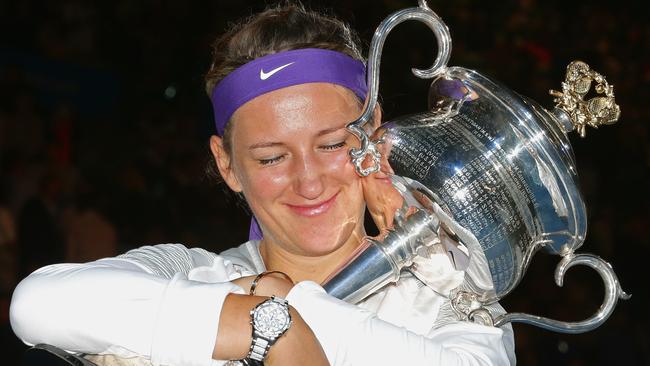
“I understand all the frustration and feeling of unfairness that has been coming and it is overwhelming.
“We have a global pandemic, nobody has a clear playbook of how to operate at full capacity and without a glitch, we have all seen it last year.
“Sometimes things happen and we need to accept, adapt and keep moving!
“I would like to ask all my colleagues for co-operation, understanding and empathy for the local community that has been going through a lot of very demanding restrictions that they did not choose, but were forced to follow.
“I would like to ask to be sensitive as well to the people who have lost their jobs and loved ones during this horrible time for all of us around the world.
“I would like to ask all of us to have respect for people who work tirelessly to try to make our lives easier.
“I would like for the people in the community to know and understand that we have it as our top priority to ensure the health safety of all the people.”
📠💠pic.twitter.com/BWTqubGMR3
— victoria azarenka (@vika7) January 19, 2021
Azarenka, 31, ended the letter asking for everyone in the tennis world to support each other saying it was always easier when there was a “compassionate environment”.
Tennis Australia boss Craig Tiley quickly responded to Azarenka’s post on Twitter, saying: “Your words are much appreciated, thank you for your support @vika7, it means a lot to us”.
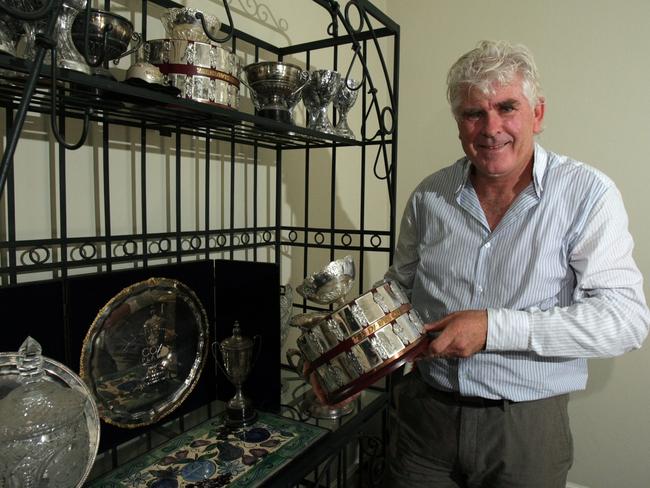
MORE FEAR THAN REALITY: EX-OPEN BOSS’S COVID TAKE
Craig Tiley’s predecessor as Australian Open tournament director says an under-siege Tennis Australia is doing everything possible to ensure players can make the most of a tough situation.
Paul McNamee was in charge of the Open from 1995-2006 and negotiated many challenges in that time – including a centre court flood at his maiden event – but said Tiley’s task this year was “on another level”.
Tiley and co. are dipping significantly into their $80 million cash reserves to help pay for an Australian Open like no other.
Charter flights, biosecurity measures and extreme quarantine are just part of the story, because of the precarious nature of the global COVID-19 pandemic.
Then throw in the daily positive coronavirus cases, an incensed playing group complaining about living conditions – whether a vocal minority or not – and an aggrieved Victorian public.
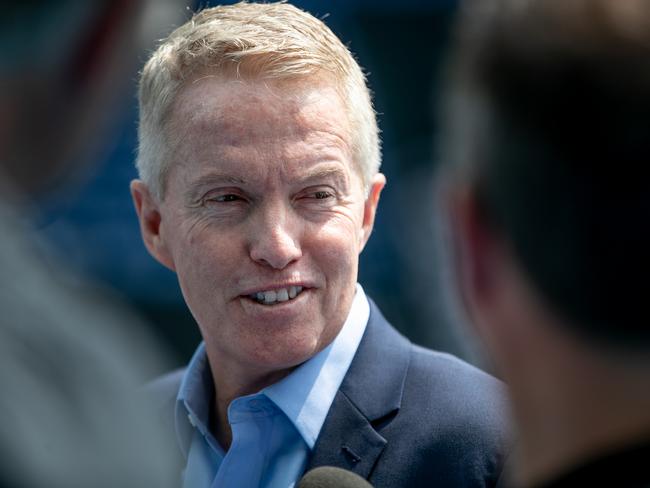
“Really, your No.1 job is putting out fires and dealing with the issues that come up every day,” McNamee told the Herald Sun of being tournament director.
“But this is on another level. I suspect once the first ball is struck, it will calm down. I’d be surprised if it doesn’t.
“The difficulty is the Victorians, and I’m a Victorian, are having trouble accepting the fact that after Victoria’s lockdown that we would put on a grand slam and bring in over 1000 international people.
“The fear around that is pervasive – I understand it – but it’s fear more than reality.”
Part of the negative narrative for critics of the grand slam being held is that Australians stranded overseas should be prioritised over international tennis players.
Tiley has been at pains to emphasise the Open’s quarantine program is above the cap for returning travellers and the flights and hotels are not at Australians’ expense.
“No one coming in for our event is taking the seat or hotel quarantine spot from a returning traveller,” Tiley told the Herald Sun last week.
In fact, McNamee thinks TA’s efforts may have even motivated the Federal Government’s decision to put on 20 more repatriation flights on Saturday.
“It’s a real issue for 37,000 (stranded) Australians … but Tennis Australia brought out more people in 48 hours than our Federal Government has brought out since the pandemic started,” he said.
“That’s not the Victorian Government’s issue here. Tennis Australia is funding the whole thing.
“It’s not the government prioritising tennis players – Tennis Australia is prioritising tennis players, because they want the Australian Open to go on.”
McNamee had to serve 14 days of hard quarantine himself in Adelaide, on his way to Melbourne, after travelling from Bulgaria.
LIFE IN COVID LOCKDOWN FOR TENNIS STARS
The shock of being on a charter flight with three positive COVID-19 cases was still to come for American Nick Monroe when he walked into his room at Melbourne’s View Hotel ahead of the Australian Open.
The doubles specialist’s first reaction?
The view at his aptly named accommodation was the wall of an adjacent building, and he knew it was far superior on the other side.
COVID LATEST: Aussie player caught up in crisis
Monroe tried to switch rooms – knowing there were more players to arrive – but was told the government knew he was there and, besides, the whole room would need to be sanitised again.
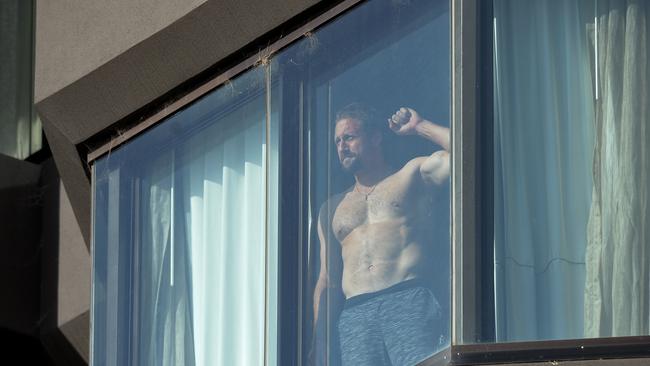
It was then he realised how strict lockdown life would be, or “extreme”, as he put it, ahead of the Australian Open on February 8.
The hammer blow landed the next day, when Monroe discovered he’d be watching that wall, and little else, for 14 days, because of what was initially two positive cases on his LA flight.
“It’s a crazy situation, but it’s all good, man – we make the best of it,” Monroe told the Herald Sun.
“Obviously, (Saturday’s news) was a bit of a surprise and I was a bit upset, having to be in the room for 14 days and quarantining when I knew I was negative.”
The reactions from the tennis world have wildly contrasted.
There were complaints about food, outrage at fellow passengers’ positive result impacting on them, and disappointment about perceived miscommunication.
On the other hand, the likes of dual Australian Open champion Victoria Azarenka and rising star Felix Auger-Aliassime opted to thank tournament boss Craig Tiley and co. for the enormous effort to save the event.
Made it to Melbourne! Thank you everyone so much for making it happen. I can only imagine how many hours of work and compromise it took for us to be here! Thank you ðŸ™ðŸ» pic.twitter.com/Jt0ywFIEj4
— victoria azarenka (@vika7) January 15, 2021
A serene – and “grateful” – Stan Wawrinka posted a photo of him having a drink and preparing to tuck into a sizeable breakfast in his grand suite.
Rule 1 of quarantine : no contact 🚷☕ï¸ðŸ³ðŸ¥‘✅🇦🇺ðŸ™ðŸ» #day1 #happytobehere #grateful #readytowork pic.twitter.com/3kDSUCNb0e
— Stanislas Wawrinka (@stanwawrinka) January 16, 2021
Others said that while it was less than ideal preparation there were some exaggerated criticisms of life in lockdown.
“It’s not easy. First tournament of the year, long trip, jet lag. But this is what we have at the moment and we will try to prepare in the best way to be in shape,” Pedro Sousa told Portuguese media.
“My room is good. The only problem with the rooms here is that we have to stay in it for 19 hours. If we were doing our normal life here, it would be perfect.
“Food is not a big deal, but they gave us $100 a day to spend on UberEats. It is not ideal, but it is what we have.”
Neutral observers can understand both perspectives, although Victorians scarred from a multi-month lockdown last year are less forgiving.
Regardless, the scenario is simple: the 47 players across the two flights with positive COVID-19 cases won’t be able to spend five hours outside training, as their peers can.
Instead, Pablo Cuevas and Yulia Putintseva are among those finding inventive ways to hit balls inside their hotel room.
Grand slam preparation 😅 pic.twitter.com/ALvc4EugN6
— Yulia Putintseva (@PutintsevaYulia) January 17, 2021
Who said that players aren’t able to do practice? 🎾
— Luca Fiorino (@FiorinoLuca) January 16, 2021
Instagram 🎥 @PabloCuevas22 pic.twitter.com/KmIbiRHWvE
Monroe had an exercise bike delivered to his room, and is hopeful some weights and a medicine ball will arrive later.
Another of the 47, Mexico’s Santy González, has a bike and a mat for stretching exercises.
The equipment is left outside their door, then the players quickly bring it inside.
“It’s day three for us and it’s tough to be in a room that’s not so big and you can’t do much, so hopefully the days pass faster,” Gonzalez said.
“After not hitting a ball or getting to go out, we’re not going to be in the best shape.
“You need at least two weeks to be close to 100 per cent.”
Australian husband-and-wife combination Luke Saville and Daria Gavrilova lived the 14-day hard lockdown experience after arriving home in November and October, respectively.
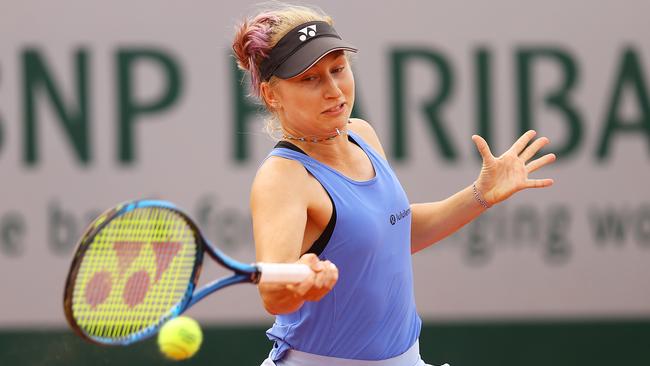
Saville – who made the Australian Open doubles final last year – served his in Sydney, while former top-20 star Gavrilova was in Perth in an interconnected room with fellow player Ellen Perez.
“We found things to do, but obviously didn’t have the stress of having to get ready for a slam,” Gavrilova said.
“We took it so slow when I came out and I can’t imagine getting into match mode straight away. You can’t go from zero to 100, but unfortunately that’s what players might have to do.”
Saville remembers struggling physically when he emerged and says he wouldn’t play a warm-up event days later if he was in the lockdown 47’s position.
“It’s less than ideal being confined to a room, then getting out with a slam a week later, especially best-of-five (sets),” Saville said.
“Tiley explained it well. At the other tournaments around the world, the (tennis) bubble is safer than the community, whereas here in Australia, the community is the safest part.”


